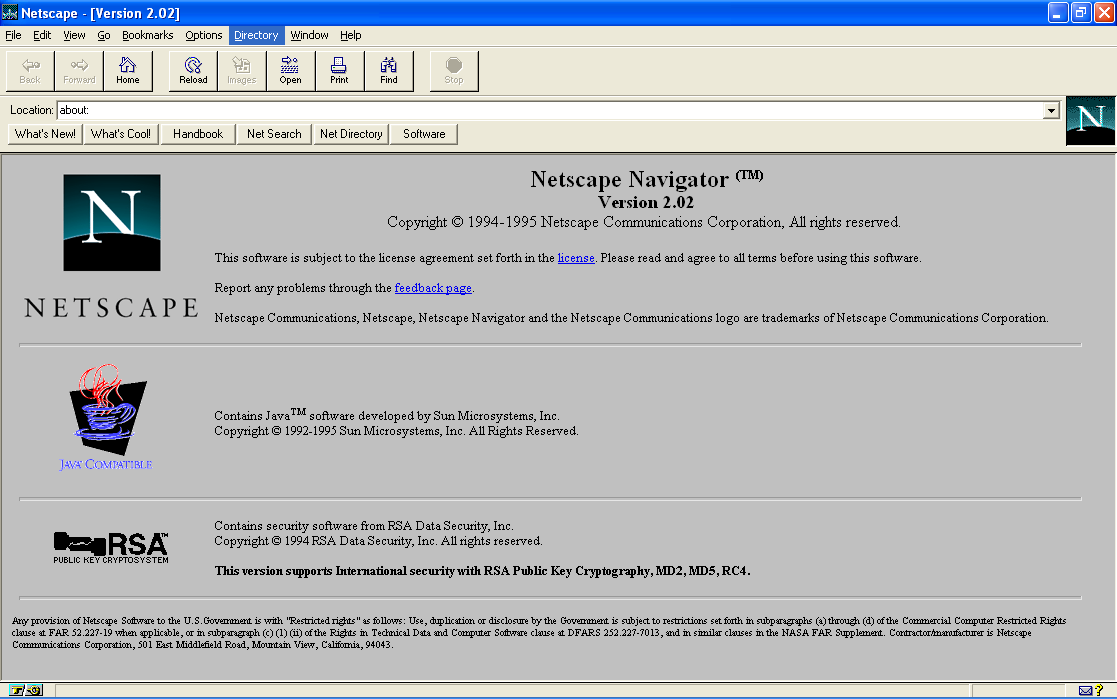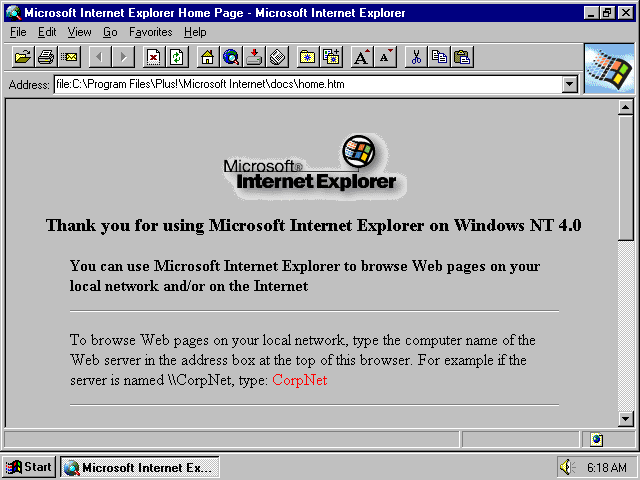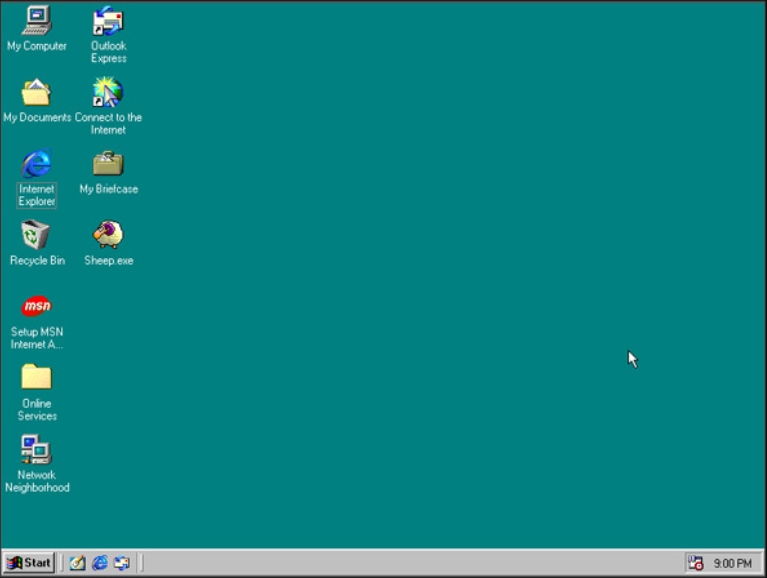Netscape
by Andy Boyd
Today, David falls to Goliath. The University of Houston presents this series about the machines that make our civilization run, and the people whose ingenuity created them.
The 1990s were dominated by one very special piece of software: Microsoft Windows. But that dominance was about to be challenged.
Windows is an operating system, a computer program that provides a canvas on which all other programs are painted. Buy a computer and you must buy an operating system. But while people bought computers from many different computer makers, virtually everyone bought Microsoft Windows.
What changed the game in the nineties was the arrival of the internet and a company called Netscape with a product of the same name. Like today's Google Chrome or Mozilla Firefox, Netscape was a web browser - an application that allowed people access to the World Wide Web, which itself became a reality in 1990.

Netscape Navigator 2 Photo Credit: Wikimedia
Microsoft was scared. As one Microsoft executive put it, "If there were ever a bullet with Microsoft's name on it, Navigator [was] it." To understand why, think about how much time we spend using web browsers on our computers today. Shopping. Reading the news. Watching videos. Playing online games. Checking weather reports. The list truly goes on and on. We spend more time web browsing than we do moving files around or connecting a new printer - activities where we're using the operating system. What made Netscape so daunting was that it didn't care what operating system it was painted on. As people turned increasingly to the web, it made the operating system less important to the average user. And that threatened Microsoft's cash cow, Windows.
Netscape was innovative. Based on NCSA Mosaic, an early browser developed with government research funding at the University of Illinois, Netscape provided many features we take for granted today; features like a graphical user interface. By some estimates, it had three-quarters of the fledgling web browser market within four months of its release.
Microsoft responded by introducing its own web browser, Internet Explorer. Early versions weren't nearly as good as Netscape, and Netscape had a big head start and a loyal following. The small company was a rising software startup on a mission to change the world.

Internet Explorer 2 on Windows NT4 Photo Credit: Wikimedia
But the behemoth Microsoft had one very, very important advantage: it could include Internet Explorer with Windows. People who were just learning about the web and were novices to installing software now had an icon they could simply click on.

Internet Explorer on an Early Windows Desktop
The results were devastating for Netscape. In 1995, well over ninety percent of people surfing the web used Netscape. Six years later, well over ninety percent were using Internet Explorer. Microsoft had won what is now known as the first browser war.

Netscape logo Photo Credit: Wikimedia
Netscape wasn't without fault. The company was one of the earliest dot com successes, attracting employees and investors more interested in money than mission. But for a time Netscape was a household word and the leading visionary of a world none of us had ever imagined.
I'm Andy Boyd at the University of Houston, where we're interested in the way inventive minds work.
(Theme music)
For a related episode, see THE WORLD WIDE WEB.
Netscape was initially founded under the name Mosaic Communications Corporationin 1994, but very shortly thereafter changed its name. The full name of the company was Netscape Communications Corporation, and the full name of the product by release 1.0 was Netscape Navigator. The single word "Netscape" was commonly used to refer to both the company and the product - a convention adopted for this essay.
Quentin Harvey. "A Beautiful Attitude." Forbes.com, March 5, 2002.
James Sebenius. "Negotiating Lessons from the Browser Wars." MIT Sloan Management Review, Summer 2002. See also: https://sloanreview.mit.edu/article/negotiating-lessons-from-the-browser-wars. Accessed July 24, 2018.